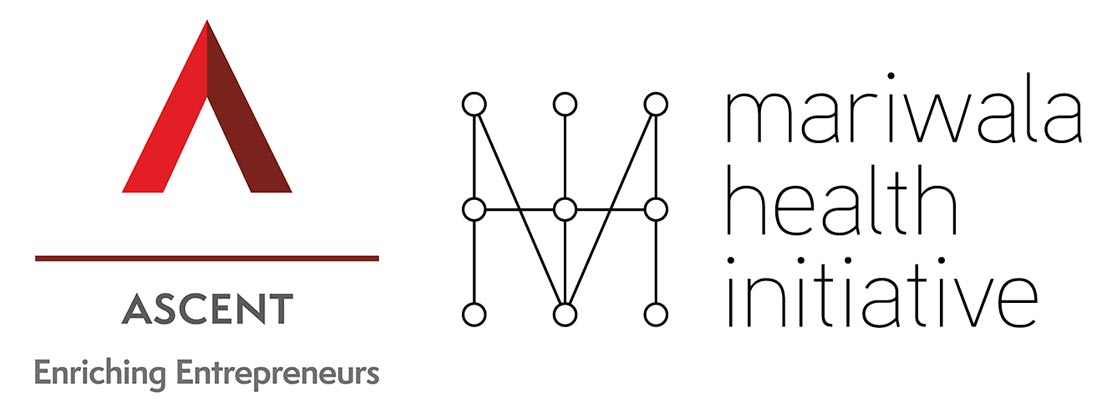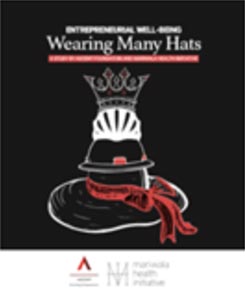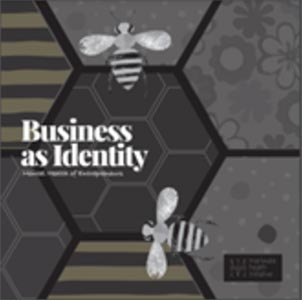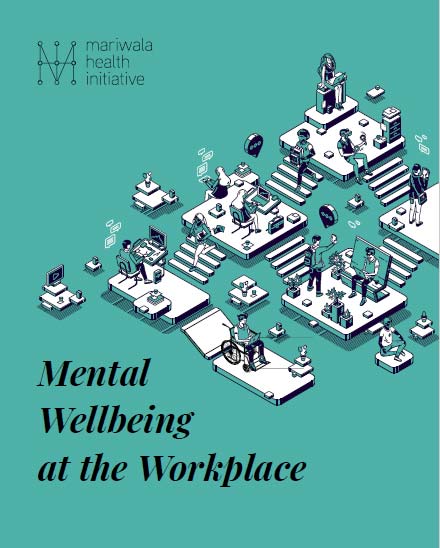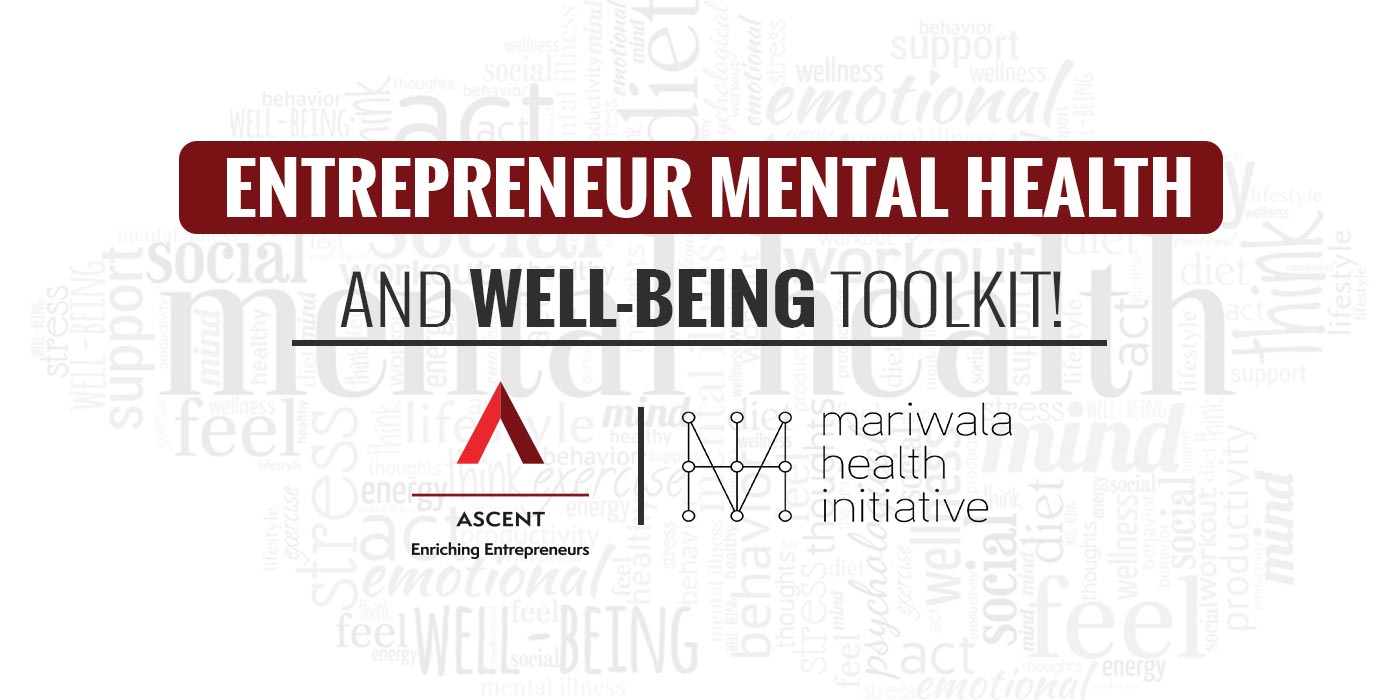
Mental health and well-being is a critical challenge that has come under the spotlight with a number of organisations realising its value. There has been a growing focus on mental health at work and active conversations on employee well-being. However, the question of prime importance today is about the pressure building on the leaders of organisations, not just for the individual, but also because challenges to their well-being are likely to be felt throughout the business, including by employees.
To understand the entrepreneurial well-being better, ASCENT Foundation, in collaboration with Mariwala Health Initiative, embarked on a joint study in 2019 that reflected on growth-ready Indian entrepreneurs and the unique stressors faced, the resulting mental health and well-being challenges, and the strategies used to cope with these stressors.
Key Findings from the Study
- The top three stress points for entrepreneurs are managing and monitoring finances, workforce management and persistent fear of failure
- Frustration, lack of clarity, tension, feeling anger and irritability were some of the top mental well-being indicators faced very often by entrepreneurs.
- At least half of the respondents said that they experienced anxiety, confusion, irritability and frustration very often
- Younger entrepreneurs (20-40 years old) experience frustration and tension, which they report makes them become reclusive, and may result in issues with their physical health.
- Those associated with ASCENT for more than one year (especially older entrepreneurs) face relatively less mental health issues versus those who have been associated with ASCENT for less than one year
- Entrepreneurs are more likely to use personal coping strategies (walking, running, unplugging) or join entrepreneurial peer groups such as ASCENT to manage their stress and maintain their mental health rather than to access professional help
The above findings from the study were a clear indication that entrepreneurs need specific, relevant and flexible mental well-being support. In line with these efforts, we bring to you this platform with an objective to create a holistic Entrepreneur Mental Health Toolkit and aim to build and adopt the resource to stay relevant with the developments in the ecosystem.
Entrepreneurial Well-being – Wearing Many Hats, a study by ASCENT Foundation and Mariwala Health Initiative was released at the ASCENT Conclave 2019 amongst 600 entrepreneurs who witnessed the start of this much required conversation around mental health and well-being.
Mental Wellbeing at the Workplace
It was important for the leaders of organisations to acknowledge their own mental health before conversations on employee well-being could be initiated with them. COVID-19 has opened up conversations on mental health both in personal spaces and in the workplace, MHI believes that it is important for corporate i.e. for-profit organisations to expand their understanding of mental health to view it not just as an individual issue but also understand how the organisation and the workplace ecosystem can impact employee’s mental well-being. We hope that this report is a starting point for conversations amongst business leaders, human resource departments and employees to take mental health seriously and to have policies and practices that not only support an employee when they experience mental health issues but also aim to prevent the occurrence of mental health issues at the workplace by working on the culture of the organisation.
Entrepreneur’s Voice of Change
“Mental well-being of an entrepreneur has a direct impact on the health of one’s business. In today’s business dynamics, stress walks like a shadow with an entrepreneur” says an entrepreneur and participant of the study. Validating the thoughts of the entrepreneur, the study brings out an array of stressors that an entrepreneur deals with at various stages of the business life cycle and the varying manifestations of these stressors.
While some of us have identified coping mechanisms to deal with these situations, most of us are still struggling to find the right answer. The ASCENT cohort leverages the power of collective and enables entrepreneurs to share insights, ideas, experience and create a healthy ecosystem to #LearnFromDoers.
In line with this belief entrepreneurs who have faced mental health challenges and have developed a unique support system to help them manage stress, are breaking the shackles of stigma around mental health and sharing their experience through the journey for the benefit of the larger entrepreneur ecosystem.
Sweta Mangal, Former CEO & Co-Founder, Ziqitza Health Care Limited and Director, MUrgency Inc. 1st Generation Entrepreneur. 44 years old, ASCENT Member
I am a workaholic in the true sense and I enjoy working for long hours. I run a healthcare company with four other partners and like any other partnership firm, we have our own set of challenges. It is always tough to make yourself heard when you have four other partners on the board with varying mindset. This could also get frustrating sometimes and unlike employees, moving jobs is not an option when you are an entrepreneur who built the company from ground zero.
Being a woman, I always find myself putting in extra effort to balance work and home. After giving birth to my daughter, I had major postpartum challenges and juggling between work and home was more challenging than ever. Professional and personal lives were of equal importance to me and unlike working men, I did not have a choice to prioritize work over home.
Soon the guilt of not spending time with my daughter swept in. The frustration that piled up within, due to the situation I was in, vented out as anger towards close family & friends and I was constantly finding faults with others. I also realized that this affected my mindset and health negatively.
With a yearning to find an answer to my misery, I resorted to professional help from a counselor/psychiatrist. My sessions with the doctor helped me compartmentalize the challenges I had and solve each of them with a different approach. While the workaholic in me did not mind the long hours of work, the mother in me set boundaries on the number of hours I work in a day. I made sure to spend time with my daughter everyday before and after my work hours.
At office, I accepted the fact that not everything can be perfect at all times. I learned to better my relation with the partner for larger benefit of the organization. The insights I received from my ASCENT Trust Group meetings at this time motivated me to branch out and start a new business, which I am really enjoying at present.
Sweta Mangal
Former CEO & Co-Founder,Ziqitza Health Care Limited
Director, MUrgency Inc
44 years, 1st Generation Entrepreneur
Abhishek Chaudhry, Director, Salasar Balaji Shipbreakers Pvt Ltd. Family-Owner Business. 28 years old, ASCENT Member
I was 22-years-old when I completed my Masters in the UK and came back to India to join my family business in the field of Iron and Steel. It was at the same time when the steel industry took a huge hit which directly impacted our company. With a lot of active projects across India and no practical experience in Business, it was a difficult phase for me to grapple with the losses and ensure business continuity. The big dreams and aspirations I had when stepping into business were now replaced with uncertainty and hopelessness.
I started to lose confidence in myself which translated to lack of trust in others. The sadness filled inside me came out as anger towards peers. I soon found myself isolated and this strained my relationship with loved ones. My blood pressure shot up and I started gaining weight.
After a year of isolation, anxiety and anger, I finally saw some success in the new vertical I launched in the company that made huge profits. However, the money I earned did not make me any happier as my relationship with loved ones magnified. It was at this point that I realized there is a whole life beyond work that constituted to my happiness and work/business is not my only identity as an individual
To restructure my life and relook at my priorities, I got into yoga and meditation with no positive results. A friend of mine then suggested I see a therapist and that was the best advice I could have got. The sessions with the therapist enabled me to get a clearer understanding of what I was going through. I then started focusing on one issue at a time and consistently worked until I resolved it. One thing that stuck with me through my therapy and that I follow even today is the Awareness -> Acceptance -> Action model.
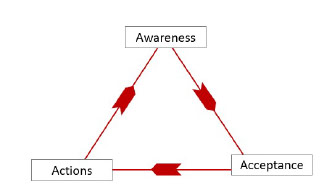
The therapy made me aware of the challenges I was facing. A thorough awareness of the challenge enabled me to accept and own it which eventually led to taking necessary actions to resolve it.
Two years into restructuring and realigning my life, I came across and joined the ASCENT Foundation. It has been a few years now with my Trust Group and the support I have been receiving is immense. The diversity in the Trust Group gives me different perspectives and helps me address challenges in my family business. Sharing challenges in the Trust Groups assures me that I am not alone in my journey and the inspiring stories fellow entrepreneurs keeps me motivated.
Abhishek Chaudhry
Director, Salasar Balaji Shipbreakers Pvt Ltd.
Family-Owner Business
28 years old, ASCENT Member
Anonymous, Second Generation Entrepreneur. 39 Years old, ASCENT Member
I am part of a family-owned business with three other members running the company each with a different mindset. Finding a professional synergy among all stakeholders and focusing on the same goal has always been a nightmare.
We are into manufacturing of consumer products and a majority of our delivery to clients is based on credit. Untimely payments and outstanding receivables then manifest into irregular cashflow, delay in salaries, etc. The constant fear and anxiety that builds up month on month due to the delayed payments converts into lack of trust in new clients and leads to me making wrong decisions.
The constant change in government policies, unforeseen regulations in imports and exports and various other external factors add to the uncertainties and the threat in our SWOT analysis keeps changing time to time making it impossible to cope up and stay ahead.
This leads to desperation to win by all means and the unsuccessful attempts builds in a sense of failure, anxiety and fear. At one such juncture, after multiple failed efforts to create a difference, I finally gave up.
But having soon realized that I have a legacy of my family business to live up to and that giving up was not an option, I started making small changes in my daily routine to ensure pressure does not build up. I started to compartmentalize my life into personal and professional. With three other family members in the business, we now decided to professionalize our work by having a weekly Board meeting, dedicated to discuss work and each other’s deliverables. We restrict ourselves from discussing work with each other anytime other than these weekly meeting. This brought in a lot more structure in running of the company and enabled us to align our goals and objectives.
Once out from office I do not take any work-related calls or even think about the tasks at hand. I do this by keeping myself busy at home, spend more time with family and accompany my kids to the playground. This also allows me to destress after a tough day at work.
The Covid-19 lockdown brought in a lot of financial challenges, with business continuity taking a hit and having over 100 employees to accommodate for during the lockdown. This led to a stressful relationship among the family. I resorted to my ASCENT Trust Group for support in dealing with these stressful times and the heartfelt experiences that members shared made me more empathetic towards them and towards my family. The meetings enabled me to get a clear understanding of the situation and at the same time assured me that I was not alone.
Anonymous
Second Generation Entrepreneur
39 Years old, ASCENT Member
Ratul Lahiri, Director, PlatinumOne Business Services Ltd. 1st Generation Entrepreneur. 42 years old, ASCENT Member
The lockdown in March 2020 triggered major challenges in the family. Being locked up in the house for months and not having personal space led to fights with my spouse and led to a situation where we started discussing getting divorced. My wife, due to her own personal challenges was under a lot of mental and emotional pressure that I failed to understand through this phase as even I was under a lot of work pressure during the lockdown.
I was emotionally drained out myself due to the continuous fights and arguments. This led to stressful days and sleepless nights. This eventually effected my daily functioning and I found myself missing important client meetings.
The lockdown led to loss of business by approx. 30% and unfortunately we had to take the hard call of asking some people to leave. The fact that I could not be of support to these people during tough times was constantly bothering me and I felt helpless. The internal pressure that built up, reflected as anger and frustration towards my wife.
With a hope to not make things worse between us, we soon recoiled and took professional help of a counselor. My wife also started doing meditation. This helped us understand each other and also gave a clear understanding on what I was going through myself.
I have great friends as business partners who extended support through these times. I was also fortunate to have my ASCENT Trust Group that provided a safe, confidential and a non-judgmental space to share my challenges and vent out the frustration. I have more experienced members in my Trust Group and they are open to sharing learning and insights from their own experiences both on the personal and professional front. This helped me a great deal in addressing and facing my challenges and also understand and empathize with my wife.
Ratul Lahiri
Director, PlatinumOne Business Services Ltd.
1st Generation Entrepreneur
42 years old, ASCENT Member
Share your story and enable the widespread change and destigmatise the conversations around mental health of entrepreneurs. Your story will be published on this page to inspire others into action.
Mental Health Tools
Each of us experience numerous stressful events or stressors throughout the day. Stress or distress in one’s life is determined on how they react to these stressors.
While some amount of stress is healthy, the increase in stress levels over time may affect mental well-being.
There are a wide range of tools and instruments available to assess an individual’s mental health and well-being. Below are a few tools that are relevant to the entrepreneur ecosystem.
Disclaimer: The scores on the following self-assessment do not reflect any particular diagnosis or course of treatment. They are meant as a tool to help assess your level of stress. If you have any further concerns about your current well being, you may contact ASCENT on fyi@ascentfoundation.in for relevant support.
Below are tools and techniques to help cope with stress and ensure mental well-being
Mental Health Practitioners
Talking and sharing your thoughts and feelings with a supportive counsellor can be an effective way to address an array of mental health challenges. Counsellors/Mental Health Practitioners are trained professionals who guide you on personal or psychological challenges and support you to make positive changes in your life.
However, finding the right mental health practitioner is challenging. To address this challenge, ASCENT had curated a relevant, reliable and authentic list of mental health practitioners, crowd sourced from ASCENT Members.
ASCENT Members can click on the below link to access the list
Note: The list is currently available only to ASCENT Members
FAQs
What is mental health? (spectrum model)
The World Health Organization (WHO) defines mental health as “A state of wellbeing in which the individual realizes his or her own abilities, can cope with the normal stresses of life, can work productively and fruitfully, and is able to make a contribution to his or her community.”
Mental health is a spectrum, ranging from well-being to a common or severe mental illness. This includes emotional, psychological & social well being. Mental health problems exist along a continuum from mild, time limited distress (grief due to loss) to common mental illness (anxiety) to chronic, progressive, and severely disabling conditions (schizophrenia).
What is stress? What is distress? What does it mean to be in crisis?
Stress is a state where one finds it challenging to deal with the demands of the situation or feels tense and uncomfortable. Stress has two components: the physical component, which involves direct bodily changes; and the psychological component, which relates to how individuals perceive circumstances in their lives.
All of us face stress as we cope with life’s challenges. There are several situations in our lives that have the potential to cause stress: from routine events such as driving and cooking; to major events such as preparing for an exam, attending job interviews or moving to a new place; and major crises such as natural calamities or having a serious illness.
Stress is a response to a situation that makes you feel frustrated, anxious or angry. In these events, a natural process known as the fight or flight response is triggered. This process releases stress hormones to help the body and mind deal with the situation at hand.
When the stressor is under control, our body responds calm and distress is what happens when we are not able to cope or bring the stress under control.
What is unique about entrepreneurs' mental health?
Entrepreneurs, like any other person, face an array of challenges through their journey. However, the stressors of an entrepreneur are very unique and are often tied to their identity as a business owner. The Study on Entrepreneurial Mental Health Well-being done by ASCENT Foundation and Mariwala Health Initiative identifies business and operation issues, fear of failure, cash flow management, sense of responsibility toward employees, etc., as the top unique stressors of an entrepreneur. Also the challenges to the entrepreneur’s well-being are likely to be felt throughout the business including employees.
What causes mental health problems?
Mental illness refers to health conditions that affect a person emotionally, psychologically, and behaviourally. Like in the case of a physical illness, this too requires treatment. They are caused due to a combination of biological (like genetic predisposition), psychological (trauma, for instance), and social factors (such as discrimination).
How do I assess myself if I have mental health problems?
What can I do to prevent mental health problems?
Each one of us deals with mental health challenges at different stages in life. This is natural, common and also normal. However, there are different mechanisms that each of us create for ourselves to enable us to prevent future occurrences of mental health problems. Following are a few coping mechanisms that entrepreneurs have shared as part of the Entrepreneurial Mental Health and Well-being study:
– Exercise, running other physical activities
– Engaging in a hobby
– Writing a diary and introspecting
– Talking to friends and Family
– Joining an Entrepreneur Peer group
– Maintaining Work Life balance by not taking work home
– Yoga and meditation
Where should I go if I am in crisis? Where should I go if someone else I know is in crisis?
If you suspect that you or someone you know has a mental health problem, you should consult a mental health professional. They could be a counselor, psychologist or psychiatrist.A counselor is trained in the art of listening and uses their skills to help the person analyze their problems, and find a rational solution. If the counselor observes that counseling isn’t addressing the person’s needs because the underlying condition is severe and may need treatment, they refer the person to a mental health expert for diagnosis, treatment, therapy, or medication, as the case may be.A psychologist has a degree in psychology and is an expert in human behavior. They use scientific methods to study the factors that influence people’s thoughts, perceptions, emotions, and actions. They use evidence-based strategies and interventions to help people overcome challenges and cope with life issues such as relationship problems, parenting issues, challenges in adolescence, lifestyle effects on health and chronic illness.A psychiatrist is a physician who specializes in the diagnosis and treatment of mental health problems. During their extensive medical training, they’re trained to understand the brain’s functions, and the complex relationship between the body and brain. They are best qualified to distinguish between physical and psychological causes of mental and physical distress, and are also the only mental health professionals who can prescribe medication.
What else can I do other than reach out to a professional?
Mental Health Challenges can be addressed through self-care. Self-care includes activities of daily living—like paying attention to your hygiene and living area—and other steps that you take for your physical and emotional wellbeing.
Self-care steps for your physical wellbeing include activities like getting your required hours of sleep, exercising regularly, going for regular medical check-ups, eating balanced meals, and eating regularly.
Taking care of your emotional well being could mean having a strong support system you can reach out to when you’re dealing with an emotional crisis or just not feeling good about something—accessing therapy to find healthy ways to cope and manage situations and emotions that are difficult for you, keeping a journal, spending time with loved ones, having time to yourself.
Taking the time to practice self-care as a matter of routine builds resilience, which in turn makes it easier for the mind and body to deal with a crisis situation, as well as improves the quality of your everyday life.
